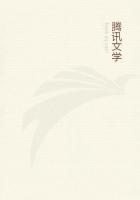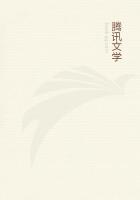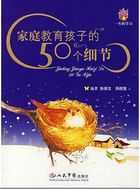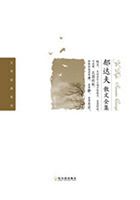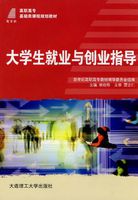Rather than justify the things I have ventured to affirm as to Swinburne's little intellect, and paltry degree of sincerity, and rachitic passion, and tumid fancy--judgement-confounding things to predicate of a poet--I turn to the happier task of praise. A vivid writer of English was he, and would have been one of the recurring renewers of our often-renewed and incomparable language, had his words not become habitual to himself, so that they quickly lost the light, the breeze, the breath; one whose fondness for beauty deserved the serious name of love; one whom beauty at times favoured and filled so visibly, by such obvious visits and possessions, favours so manifest, that inevitably we forget we are speaking fictions and allegories, and imagine her a visiting power exterior to her poet; a man, moreover, of a less, not more, than manly receptiveness and appreciation, so that he was entirely and easily possessed by admirations. Less than manly we must call his extraordinary recklessness of appreciation; it is, as it were, ideally feminine; it is possible, however, that no woman has yet been capable of so entire an emotional impulse and impetus; more than manly it might have been but for the lack of a responsible intellect in that impulse; had it possessed such an intellectual sanction, Swinburne's admiration of Victor Hugo, Mazzini, Dickens, Baudelaire, and Theophile Gautier might have added one to the great generosities of the world.
We are inclined to complain of such an objection to Swinburne's poetry as was prevalent at his earlier appearance and may be found in criticisms of the time, before the later fashion of praise set in--the obvious objection that it was as indigent in thought as affluent in words; for, though a truth, it is an inadequate truth.
It might be affirmed of many a verse-writer of not unusual talent and insignificance, whose affluence of words was inselective and merely abundant, and whose poverty of thought was something less than a national disaster. Swinburne's failure of intellect was, in the fullest and most serious sense, a national disaster, and his instinct for words was a national surprise. It is in their beauty that Swinburne's art finds its absolution from the obligations of meaning, according to the vulgar judgement; and we can hardly wonder.
I wish it were not customary to write of one art in the terms of another, and I use the words "music" and "musical" under protest, because the world has been so delighted to call any verse pleasant to the ear "musical," that it has not supplied us with another and more specialised and appropriate word. Swinburne is a complete master of the rhythm and rhyme, the time and accent, the pause, the balance, the flow of vowel and clash of consonant, that make the "music" for which verse is popular and prized. We need not complain that it is for the tune rather than for the melody--if we must use those alien terms--that he is chiefly admired, and even for the jingle rather than for the tune: he gave his readers all three, and all three in perfection. Nineteen out of twenty who take pleasure in this art of his will quote you first When the hounds of Spring are on winter's traces The Mother of months, in meadow and plain, and the rest of the buoyant familiar lines. I confess there is something too obvious, insistent, emphatic, too dapper, to give me more than a slight pleasure; but it is possible that I am prejudiced by a dislike of English anapaests (I am aware that the classic terms are not really applicable to our English metres, but the reader will underhand that I mean the metre of the lines just quoted.) I do not find these anapaests in the Elizabethan or in the seventeenth-century poets, or most rarely. They were dear to the eighteenth century, and, much more than the heroic couplet, are the distinctive metre of that age. They swagger--or, worse, they strut--in its lighter verse, from its first year to its last. Swinburne's anapaests are far too delicate for swagger or strut; but for all their dance, all their spring, all their flight, all their flutter, we are compelled to perceive that, as it were, they PERFORM. I love to see English poetry move to many measures, to many numbers, but chiefly with the simple iambic and the simple trochaic foot. Those two are enough for the infinite variety, the epic, the drama, the lyric, of our poetry. It is, accordingly, in these old traditional and proved metres that Swinburne's music seems to me most worthy, most controlled, and most lovely. THERE is his best dignity, and therefore his best beauty. For even beauty is not to be thrust upon us; she is not to solicit us or offer herself thus to the first comer; and in the most admired of those flying lyrics she is thus immoderately lavish of herself. "He lays himself out," wrote Francis Thompson in an anonymous criticism, "to delight and seduce.
The great poets entice by a glorious accident . . . but allurement, in Mr. Swinburne's poetry, is the alpha and omega." This is true of all that he has written, but it is true, in a more fatal sense, of these famous tunes of his "music." Nay, delicate as they are, we are convinced that it is the less delicate ear that most surely takes much pleasure in them, the dull ear that chiefly they delight.
Compare with such luxurious canterings the graver movement of this "Vision of Spring in Winter":
Sunrise it sees not, neither set of star, Large nightfall, nor imperial plenilune, Nor strong sweet shape of the full-breasted noon;But where the silver-sandalled shadows are, Too soft for arrows of the sun to mar, Moves with the mild gait of an ungrown moon.

